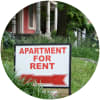8 Tips to Manage Your Properties Off-Site & Remotely

Managing a rental property is no simple task. However, when you add in the factor of being off-site as landlords, there are a whole new set of challenges that present themselves. Long-distance property management is not impossible, though.
If you’re looking to remotely manage or are currently doing so, here are eight tips to manage your properties off-site.
Set Strict Lease Terms
One of the most critical pieces of the landlord-tenant relationship is the lease agreement in rental properties. This legally binding document helps set the tone for your working relationship by explicitly detailing the expectations for both landlords and tenants involved.
For landlords who plan to remotely manage their rental properties, setting strict lease terms will help you in the long run.
Use the lease agreement to highlight the rules, so you can assign expectations to the tenant before they move in. That way, if your tenants have any questions, they know they can reflect on the lease in your absence.
Understand the Local Market
Another helpful thing for all landlords, especially so for those managing long-distance, is understanding the local market. As landlords, you must be consistently monitoring the competition so that you can rest assured your property is being pricey competitively.
Understanding the local market will help ensure that you can charge the highest rent as possible while remaining competitive based on what’s currently available in the area.
Here are a couple of outlets you can utilize to stay in the know and keep yourself educated.
National Rent Reports
Keep up-to-date on rent prices across the country by regularly reading national rent reports. Apartment List releases these monthly national rent reports at the beginning of each month, so you can take a look at how the market has been trending and what to expect in the months ahead.
Reading through rent reports as extensive as these will help you keep your finger on the pulse. You can even take a look at some of the highly detailed infographics, including Apartment List City-Level Rent Estimates, Vacancy Index, and much more.
Local News
You can also keep up to date with details of your local market by subscribing to local news. Find out the most reliable local news for the area and get added to any possible mailing lists.
While you will see that you are receiving real estate-related news, reading all of the local news will help you understand what’s happening in the community. All landlords know there are tons of things impacting the local real estate market.

Create a Smooth Moving-in Process
Ensure your tenants are set up for success! Make sure the moving process is set up effectively with detailed steps if you can’t be there that day.
While landlords should ideally be readily available and show their tenants this by being there at move-in, it’s not always realistic. Especially if you are remotely managing your property, you’ll have to figure out how to create a smooth moving-in process in your absence.
The tips to help ensure your tenants have the perfect move-in day are similar to those when managing a rental property that you can be readily available for. The biggest difference between the two is that you will have to rely on a trusted individual to help you when another individual is required.
- Address any repairs and health or safety concerns
- Have your property professionally cleaned
- Complete all required compliance and property inspections
- Present the lease agreement and require signatures
- Collect initial funds (including any deposits and first month’s rent)
- Send tenant move-in procedures
Thankfully, it’s simple to send the tenant move-in procedures ahead of the time remotely. This step is critical in a smooth move-in date and allows your tenant to reach out to you with any questions before the day they are supposed to be moving in.
Move-In Day Welcome Packet
Included in the move-in procedures should be a welcome packet for all of your tenants. The information included in your welcome packet should be organized so that your tenants can easily reference it at a later date. After all, move-in day can be rather hectic, and your tenants may be overloaded with information all at once.
Here are some essential things to include in your welcome packet:
- Landlord contact information
- Local contact information (for emergencies)
- Information about how and where rent should be sent each month
- Property rules (alterations, painting, etc.)
- How to report maintenance requests vs. emergency issues
- Specific information about the property (any special instructions on using certain equipment, where to locate the breaker box and main water valves, etc.)
- Waste collection, recycling, street sweeping schedules

Check-in with Tenants Frequently
Most landlords plan to regularly visit their property to make sure they can address any concerns as quickly as possible. This concept is also helpful in reassuring your tenants that you are readily available if they have anything that they need help with.
Unfortunately, for those managing remotely, this can be a bit more challenging. Thankfully, checking in with your tenants can be equally as effective as making visits.
Check-in with your tenants to ensure they don’t need things while you’re gone. Having this level of rapport will help to build trust in your landlord-tenant relationship.
You should still plan to visit the property at least once per year. During this time, it would be best if you could try to meet with your tenants to make sure they’re happy with everything so far.
Remember, taking care of your tenants means they are less likely to look elsewhere when it comes time to renew the lease. Keeping your tenants in your rental ultimately makes your life easier and allows you to focus your attention elsewhere rather than having to babysit this one property.
Always Manage Your Expenses
Similar to local landlords, you always need to manage your expenses. Sometimes, when you are managing remotely, some of the costs of operating your rental can be harder to keep track of.
Despite the challenges, you must keep records of your expenses and use historical data or market averages to avoid overspending.
Ultimately, owning a rental property should be a profitable experience. If you are managing your expenses closely and finding that it is costing you more than you are making from it, it might be time to reconsider.

Form Relationships with Your Go-to Service People
Whether you are a local or remote landlord, you will be faced with maintenance and repair requests from your tenants that will need servicing. One of the downsides of being a long-distance landlord is that you are not able to tend to some of the smaller calls on your own.
Instead, you’ll almost always have to rely on your go-to service people to handle matters on your behalf. Because you will be relying on these individuals so heavily, it’s important to have good relationships with all of them.
Before you even consider having a remote rental property, make sure to already have a running list of service people you will need, including:
- Housekeepers
- Contractors
- Plumbers
- Repair people
Then, once you decide on a rental property, make sure to find go-to people and develop your relationship with them early on. Taking the time to complete this critical step will help save you headaches and cash in the long run.
Invest in a Property Management System
A property management system refers to a program or online software that is designed to help you manage your property remotely.
You can use online property management software to process payments, store maintenance requests, etc. Although these services will come at an additional cost to you, these costs surely pay off in the long run, especially for landlords managing their property long-distance.
Thankfully, there are countless property management systems readily available to choose from. Some examples of companies you might want to look into may include:
- Rentec Direct
- Appfolio
- Resman
- Entrata

Hire a Property Management Company
Similar to property management systems you can also pay a property management company to take over the duties of being a landlord.
The sites you may research for your property management system can also serve as your property management company.
Opting to hire a property manager can be an effective way to have someone handle your property in person without you being there. They can do everything from sourcing your tenants to managing the day-to-day operations, depending on what level of involvement you’d like for them to have of your property.
Benefits of a Property Management Company
While property management companies come at a cost, there are countless benefits to look forward to when hiring them. For landlords who are interested in living away from the areas where their rental properties are located, property management companies can be especially helpful in reducing stress while allowing for more freedom and free time.
In addition to the personal benefits, landlords can also look forward to easing the overall landlord-tenant relationship.
Help You Find High-Quality Tenants
Finding great tenants is no easy task but property management companies have it down to a science. They are the professionals when it comes to finding the type of tenants you want in your rental property.
Property management companies are more likely to find good tenants who:
- Cause less problems
- Cause less damage to your property
- Pay rent on time
- Become long-term tenants
Consistently Collect Rent
Collecting your monthly rent check from tenants is crucial to keep your business running smoothly when it comes to rental properties. Any hiccups in this process can through your whole life off course.
Unfortunately, while the ideal tenant will always pay rent in full and on time through the preferred methods, this is not always the reality. Thankfully, having a property management company handling this for you means that you can anticipate more consistent rent collection overall.
Reduce Your Maintenance and Repair Costs
Since property management companies are large, they have long-lasting and well-developed relationships with professional maintenance workers. If they do not have their own in-house team, like some of the larger companies will, they will at least have a network of highly qualified individuals.
In most instances, these workers have already been vetted through the property management's stringent requirements to make it on their preferred list. This can save you both time and money.
Avoid Dealing with Legal Issues
As landlords, legal issues can sometimes arise despite your best efforts to avoid them. When you are faced with legal issues on your own it can become time-consuming and costly.
Property management companies often have legal teams or lawyers readily available if needed. They will be up to date on all of the latest legal concerns regarding rental properties in the area so that you don’t have to be.
Assist You in Maintaining the Value of Your Home
Since you have someone local to tend to any of your maintenance or repair concerns for your home, you can address problems before they become much larger and difficult to deal with.
The best way to preserve and potentially increase the value of your rental property is by staying on top of preventative maintenance. With the help of your property management company conducting regular maintenance checks, you will not have any issues with maintaining the value of your home.

Final Thoughts
There are several considerations to keep in mind when choosing to remotely manage your rental property. It is your responsibility to do your homework and find out your options to choose wisely.
If you've made your decision to get started on your own, it's time to get your property listed. Make sure you choose a platform you can trust to get the job done.
Your go-to for property listing needs should always be Apartment List. We'll deliver prospective tenants eager to rent your unit. All prospects have been matched to your unit and have a higher chance of signing a lease agreement with you.
Are you interested in filling your apartment vacancies?
Share this Article



